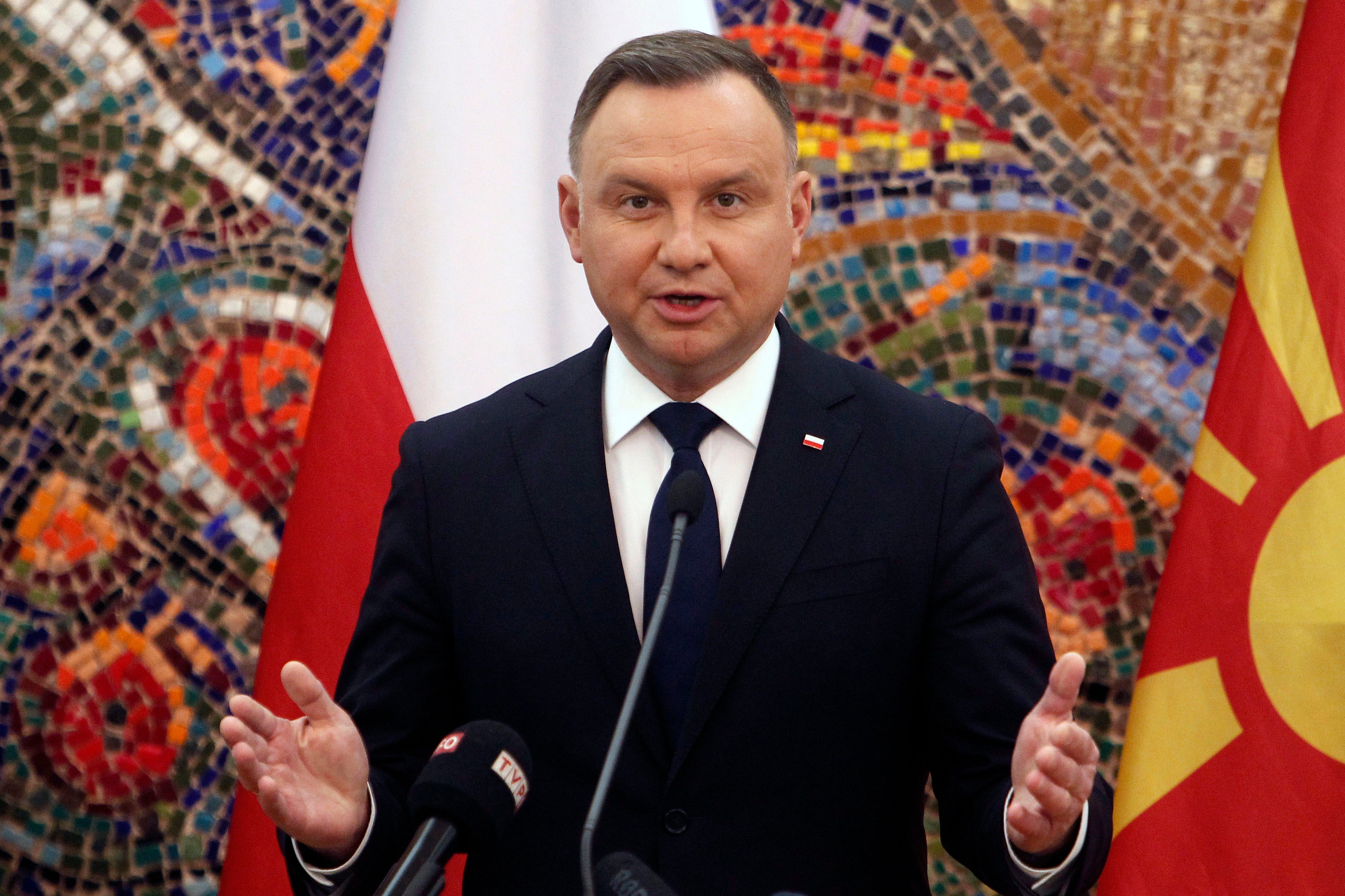Press freedom or diplomacy? Why Poland’s president vetoed controversial media bill
Andrzej Duda’s decision was likely driven by diplomacy more than any desire to protect the media, reports Amanda Coakley


When Poland’s President, Andrzej Duda, vetoed a controversial media bill at the end of last year, it looked like a victory for press freedom in the central European country.
The legislation would have tightened rules over foreign ownership of Polish media companies, a move the ruling Law and Justice party (PiS) said would prevent interference from nefarious Russian or Chinese actors.
In reality, the biggest company affected by the bill would have been the American Discovery, Inc, who own the popular Polish channel TVN, which is a regular critic of the conservative-nationalist government.
The decision though is less about press freedom, more about diplomacy and trade. Duda said in a televised address that the veto was about honouring an existing treaty with the US, while also acknowledging that Poland doesn’t need “another disturbing or troubling issue”.
Since coming to power in 2015 PiS has undermined the country’s judiciary by stacking the courts with judges sympathetic to the party and establishing a disciplinary chamber.
Women’s reproductive rights have been rolled back with abortion effectively outlawed. Discrimination towards the LGTBQ+ community has been supported by PiS, and press freedom has been curtailed. This full-frontal assault on democratic values has triggered rebuke not just from Brussels but Washington as well, a key security ally.
President Biden’s relationship with Warsaw has also been strained due to PiS’ strong support of his predecessor Donald Trump, who visited Poland in 2017 to deliver a speech packed with nationalist sentiment and fearmongering.
Speaking to a crowd gathered in Krasiński Square – home to a monument commemorating the 1944 Warsaw Uprising against the Nazis – Trump declared: “The fundamental question of our time is whether the west has the will to survive” before issuing a call to arms to “counter forces” that “threaten to undermine values” and “erase the bonds of culture, faith and tradition” – words which echoed a plethora of PiS leader Jarosław Kaczyński’s speeches.
Nonetheless, Washington has taken steps to build bridges with Poland, especially in the face of growing Russian tensions. In June Biden met Duda on the margins of a NATO Summit in Brussels where the US president “reiterated his support for NATO’s strengthened defence and deterrence agenda” – Poland has been a NATO member since 1999 - and is described by the State Department as “a linchpin of Eastern Flank security”.
Poland was also invited to the White House’s ‘Summit for Democracy’ in early December to discuss ways to “renew democracy”. Hungary, Poland’s illiberal ally, was not invited. Lastly, the United States was a firm supporter of Poland’s response to Alexander Lukashenko’s orchestrated migration crisis on the EU’s border last year, expressing “solidarity” as Polish border police erected razor wire on its border and engaged in pushbacks.
So when a surprise vote in December on the media bill to tighten foreign ownership rules, which was named Lex TVN, blindsided Washington, pressure was applied to reverse the decision. Discovery is among the top 10 US investors in Poland according to a 2020 report by KPMG, and America is the second most important source of investment capital in the country. Shaking investor confidence at a pivotal moment for US-Poland relations would have spelled disaster for future investments.
After Duda’s announcement on a call to his Polish counterparts, US National Security Advisor, Jake Sullivan, conveyed President Biden’s “appreciation” for the veto and said it “sent a positive signal” before Poland took over the Chair of the Organisation for Security and Cooperation in Europe on Saturday.
According to Reporters Without Borders, Poland has dropped 44 places to 64 on its World Press Freedom Index since 2015, its worst ever ranking. The group also declared a “press freedom state of emergency” in September after journalists were banned from covering the crisis on Poland’s border with Belarus.
Soon after coming to power in 2015, PiS took control of state broadcaster TVP and ridded the channel of dissenting voices. In March the state-controlled oil giant Orlen bought Polska Press, who own the majority of Polish regional daily papers, and purged senior leaders seen as critical of the government. Despite such a crackdown independent media has thrived online, but smear campaigns and the dissemination of lies by state media remains rife.
To reject Duda’s veto the lower house of parliament would need a three-fifths majority with the presence of half the members, an unlikely scenario given PiS’ wafer-thin majority.
Should the law have made it Discovery would have had six months to sell its shares in TVN and would have taken legal action against the decision. Poland is currently experiencing a 7.8 per cent rise in inflation, a record number cases of coronavirus cases and is locked in a dispute with Brussels over the rule of law and the delivery of €36 billion (£30 billion) in pandemic recovery funding.






Join our commenting forum
Join thought-provoking conversations, follow other Independent readers and see their replies
Comments